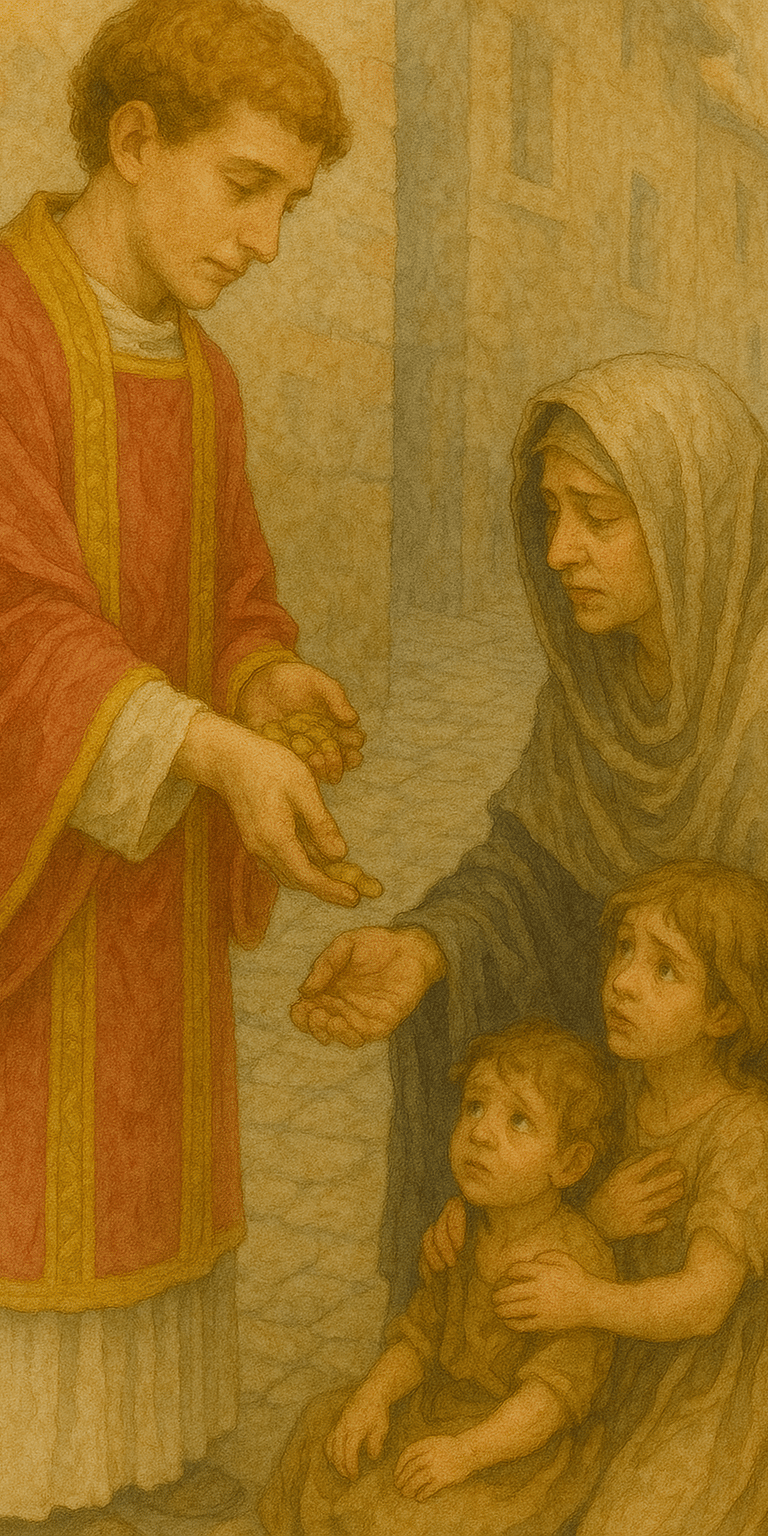St. Lawrence: The Church's True Treasure
Feast Day: August 10 | Patron of deacons, cooks, librarians, and the poor
Halo & Light Studios
8/10/20252 min read


Click Link for a reel of Daily Dose of Saints and Faithful Art:
https://youtube.com/shorts/3e99WgZzmgg?feature=share
Rome, August 258 AD. The imperial city was restless. Emperor Valerian’s decree had unleashed a calculated strike against the heart of the Catholic Church. Bishops, priests, and deacons were to be executed without trial. The strategy was clear: sever the shepherds from the flock, starve the Church of leadership, and scatter the faithful in fear.
On August 6, Pope Sixtus II was seized while celebrating Mass in the catacombs of St. Callixtus and was immediately beheaded. Among those closest to him was the young Archdeacon Lawrence — the first among Rome’s seven deacons — entrusted with both the Church’s charitable works and the safekeeping of her material goods.
The prefect of Rome summoned Lawrence. “Bring me the treasures of the Church,” he demanded, expecting chests filled with gold, silver, and precious artifacts. Lawrence did not protest. He simply asked for three days to gather them.
Those three days became his final ministry. Working quickly and without hesitation, Lawrence transformed gold into bread, sacred vessels into shelter, and distributed every coin among the poor, widows, orphans, and sick. By the appointed day, the Church’s wealth had been poured entirely into the hands of those Christ calls “the least of these.”
When Lawrence appeared before the prefect, he was not flanked by guards carrying treasure, but surrounded by the very people to whom he had given everything. “These,” Lawrence declared, “are the treasures of the Church.”
Humiliated before his officials, the prefect could not let the insult stand. Lawrence was sentenced to die by being roasted alive on a gridiron. Bound over the flames, the young deacon endured the agony with supernatural courage. Tradition holds that even as the heat seared his flesh, his faith burned brighter, and with holy humor he said, “Turn me over; I am done on this side.”
His faith and charity were not confined to those three final days. Only yesterday, the Church honored St. Romanus — a Roman soldier who, while guarding the Christians in prison, was converted by Lawrence’s witness and baptized before his own martyrdom. The conversion of Romanus shows that Lawrence’s light shone even behind prison walls, turning hearts to Christ before his own death.
St. Lawrence’s martyrdom on August 10, 258, became more than an execution — it became a rallying cry for Christians across the empire. His life declared that the Church’s greatest treasures are her people, and that charity, united with faith, is stronger than any fire.
And in our own time, when living boldly as a Christian often demands courage, his witness challenges each of us: are we like Lawrence? Do we have the zeal to show others the way to God, even at personal cost? Or do we hide the flame of faith like a lamp under a basket? The world does not need hidden lamps. It needs light — the kind that even persecution cannot put out.
St. Lawrence, pray for us.
